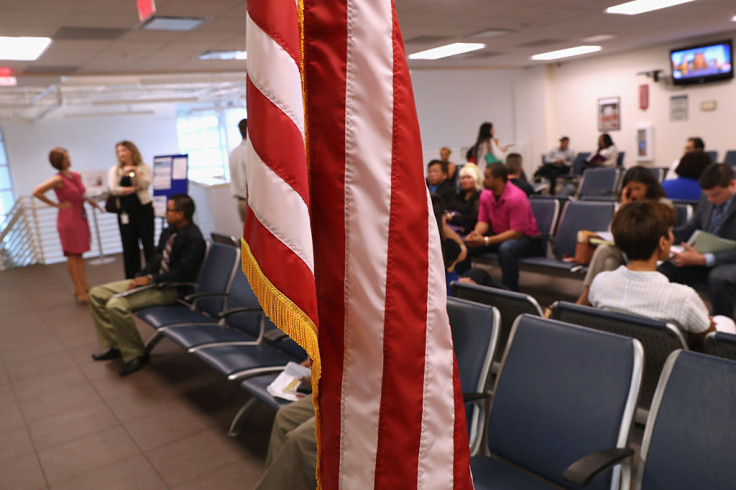
Federal officials are moving to reinstate a stricter version of the U.S. citizenship test, a change critics say could limit access to naturalization for millions of permanent residents, a new sprawling by Tampa Bay Times explains.
Joseph Edlow, the newly confirmed director of U.S. Citizenship and Immigration Services (USCIS), has argued during the last few weeks that the current test is too easy and does not fully reflect the knowledge Congress intended prospective citizens to have.
"The test, as it's laid out right now, it's not very difficult," said Edlow during an interview with The New York Times in late July. "It's very easy to kind of memorize the answers. I don't think we're really comporting with the spirit of the law."
Under the proposed rules, applicants would need to answer 12 out of 20 civics questions correctly, up from the current requirement of six out of 10, as Tampa Bay Times explains. The question pool would expand from 100 to 128, covering U.S. government, history, symbols, and holidays. Applicants aged 65 or older would still answer only six out of 10 questions correctly in both versions of the test.
Advocates say this version, initially introduced in late 2020 by the first Trump administration, is more complex and demands higher English comprehension, creating barriers for those with language or education challenges. The Biden administration ended the change in February 2021 and brought back the 2008 civics test.
"It's going to be harder, and it's going to discourage some people," said Jose Fernandez, immigration services program manager for Catholic Charities in St. Petersburg to the Tampa Bay Times, while Mark Kukis, director of the Citizenship Coalition said the number of immigrants applying could drop drastically:
"They (immigrants) have played by the rules and in many cases made very difficult journeys in the hope of becoming U.S. citizens. Why put up yet more obstacles for people who come to the United States for all the same reasons so many generations of immigrants have come before?"
Last year, about 8.7 million lawful permanent residents were eligible for citizenship, but only 818,500 completed naturalization—roughly 9% of those eligible.
Edlow's tenure comes amid broader immigration policy changes, including revisions to the H-1B visa program to favor higher-paid foreign workers and efforts to revisit the public charge rule that bars green cards for applicants likely to rely on public benefits.
USCIS has not announced an exact timeline for implementing the revised naturalization test, but Edlow has indicated it will be reintroduced soon.
© 2025 Latin Times. All rights reserved. Do not reproduce without permission.






